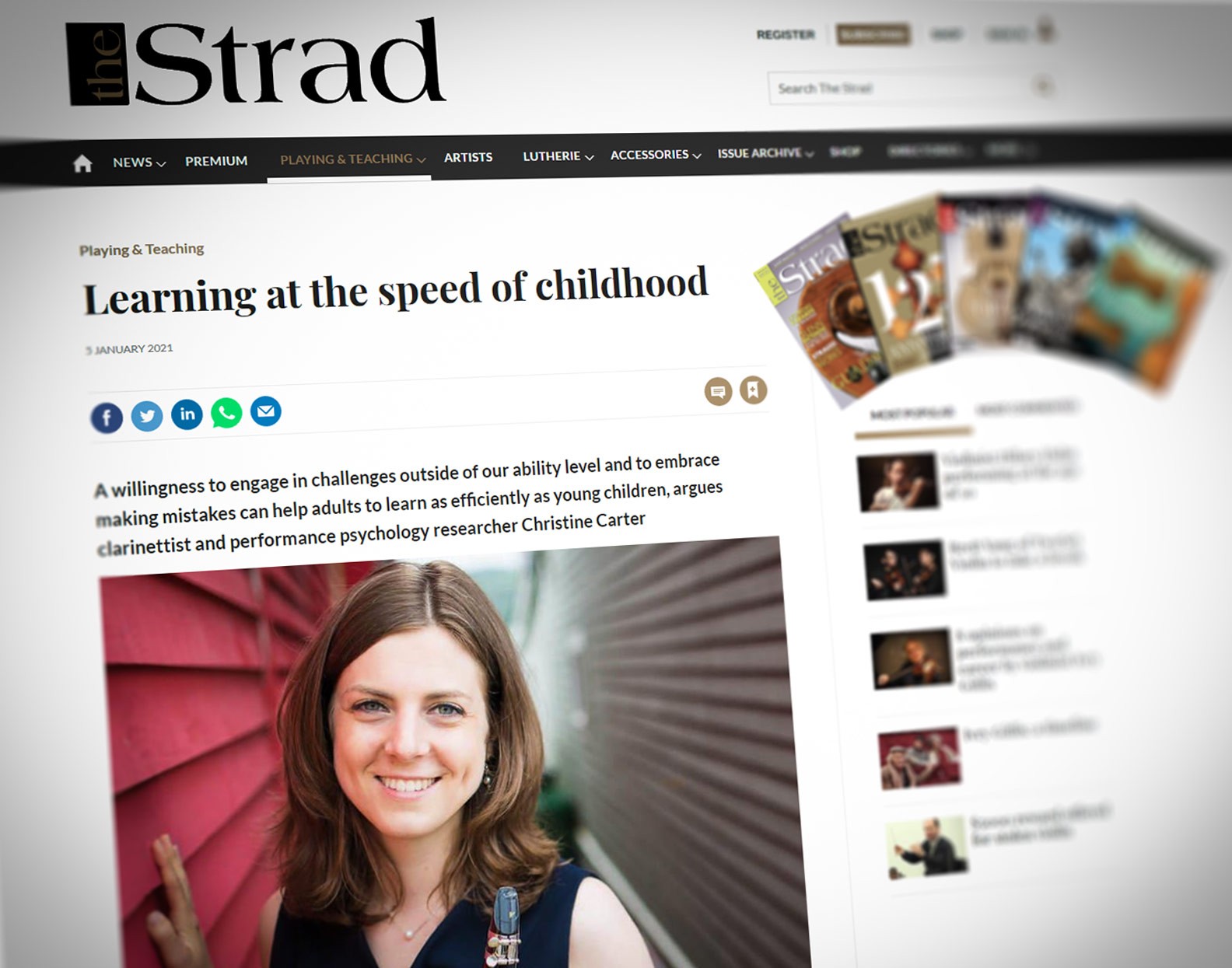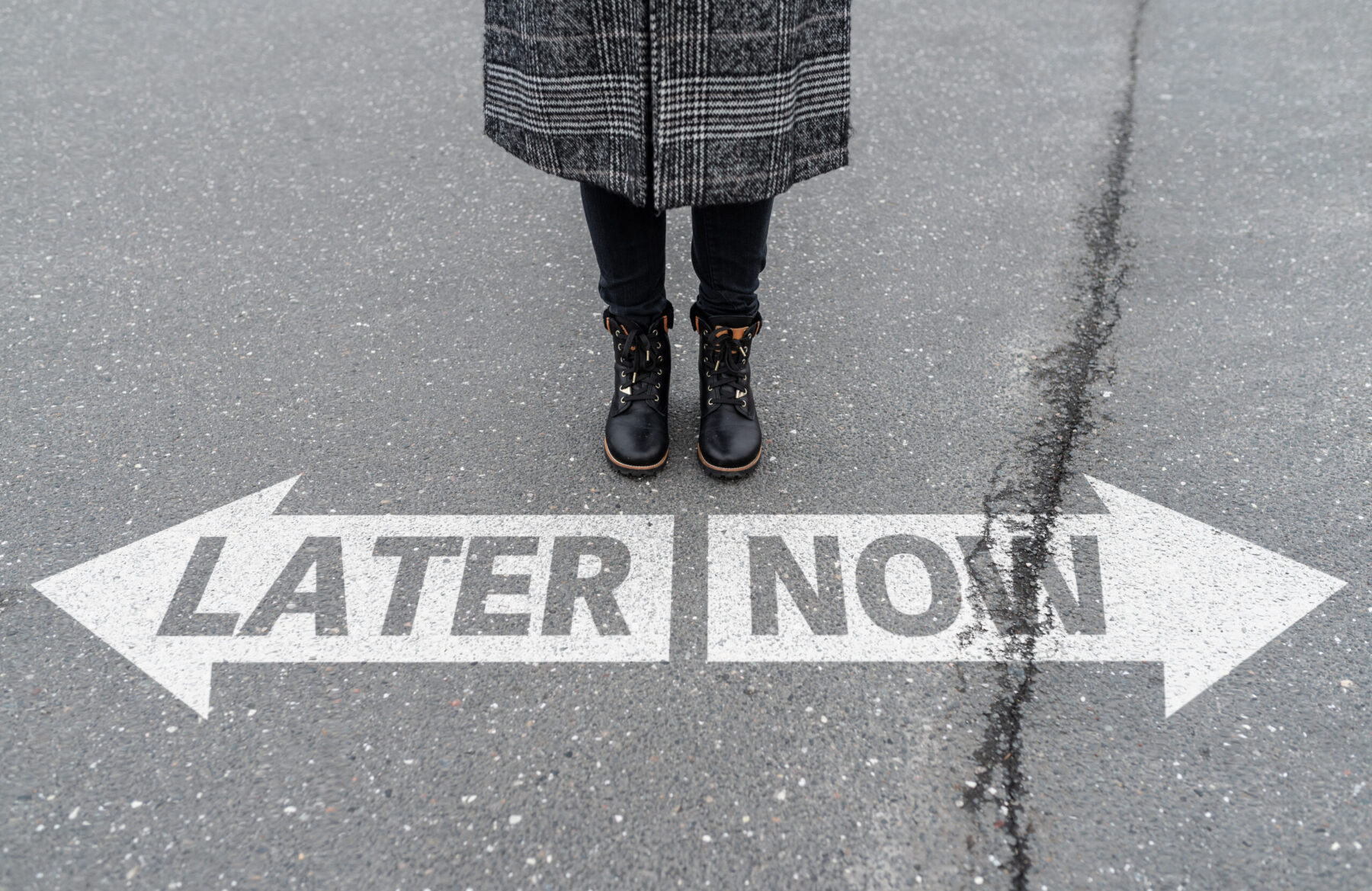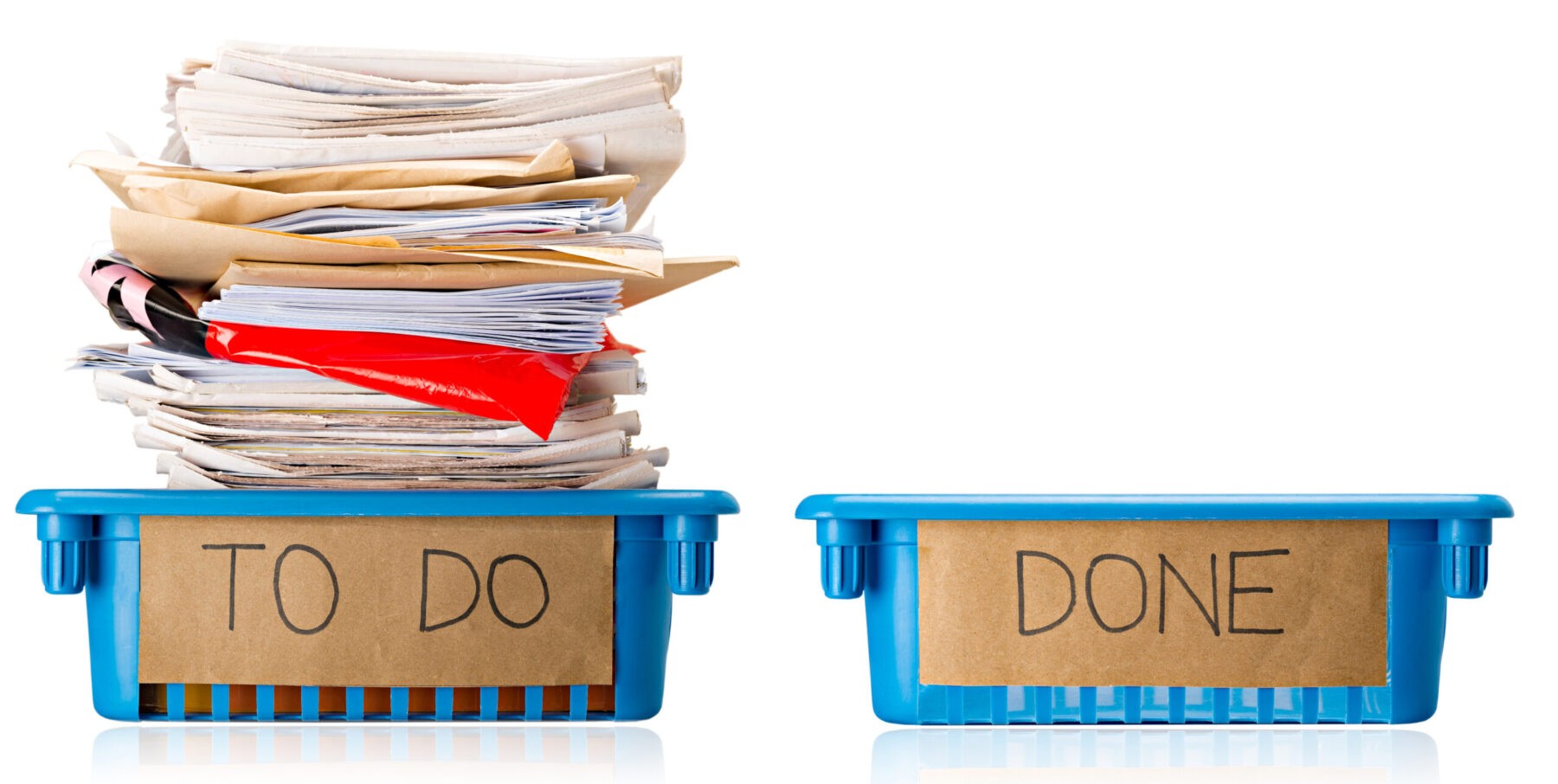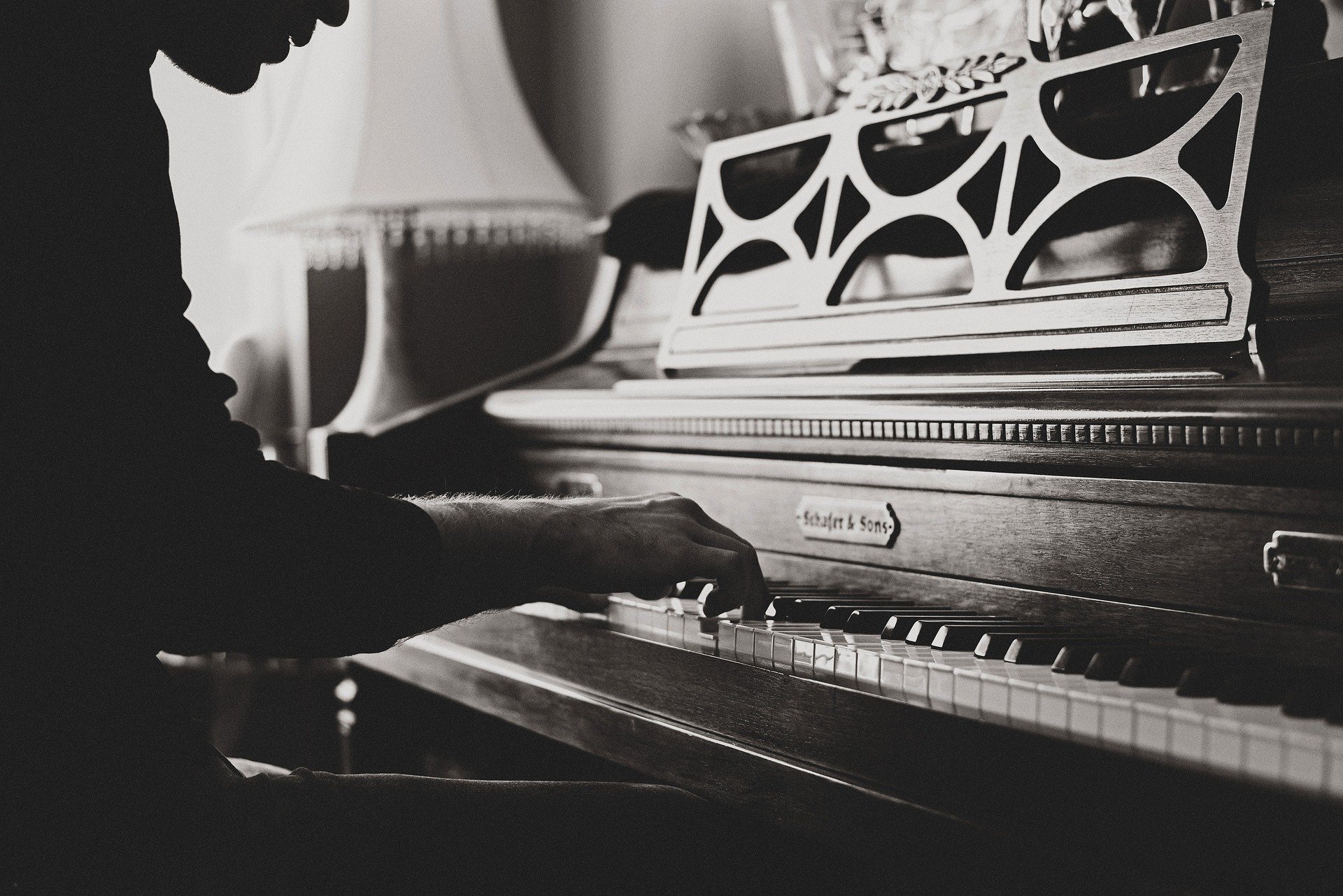It is no secret that musicians are struggling with motivation right now. I have been hearing this week after week from musicians around the world as we experience the global pandemic and a long-overdue reckoning with systemic racism in our communities and institutions. The gulf between the world we know and the world we want is immense. Despite the very real reasons for this noticeable drop in motivation, there seems to be a significant divide between what people are experiencing and what they feel they should be experiencing right now. The guilt is palpable.
I offer this article to anyone who is struggling, in case it can provide one source of understanding and a possible path forward.
A Pandemic is not the Same Thing as a Practice Retreat
Since the pandemic began, I have given a number of performance psychology workshops for various institutions and digital learning retreats. I frequently ask an anonymous question near the beginning, having students close their eyes and raise their hand if they are struggling with motivation. Almost everyone raises their hand every time. This is an issue affecting the entire arts community right now.
This said, many musicians have felt that, with everything cancelled and schedules opening up, this should be the perfect time to go deeper into their practice. On the surface, there is an illusion of more space. But a pandemic is not the same thing as a practice retreat.
While it may be rare for musicians to see such scheduling gaps, there is a fundamental difference between unscheduled time in a calendar and open space in our minds. All of the cancellations may have opened up chunks of time in our schedules, but many of us are still experiencing a complete lack of space in mental bandwidth.
This overwhelm is completely understandable. Never before has a global pandemic had such an enormous and long-lasting impact on the arts sector. Even the 1918 Flu didn’t have as lengthy an impact on music-making, with many cancellations lasting only a number of weeks. After five months, we still don’t know when we will be able to make music together again in person or embrace the people we care about. Worries about health, dependent care, finances, and the very future of our lives as musicians loom large. Many of us mourn the loss of loved ones taken during this time. And while the pandemic rages forward, we continue to bear witness to human rights atrocities around the world and a planet in crisis.
Given the circumstances, it is unlikely that our mental space is going to open up dramatically anytime soon. There are just too many tabs open and programs running in the background. And I wonder if we can start from here, validating and allowing our experience, knowing that it is totally reasonable to be struggling with motivation right now. Once we can accept where we are and that it’s okay to be here, we can find a way forward.
Some Thoughts on Breaks
Taking breaks does not always come naturally to musicians. I could not count the number of times I have been too exhausted to work but sit at the computer scrolling instead of taking an intentional break. In some moments it is clear that no productive work will be accomplished, but consciously deciding this and shifting to “off-time” somehow seems radical. We have come to expect that all empty space be filled and are missing out on activities that could be truly restorative instead.
This has played out on a much larger scale during the pandemic. Like many others, I also started from a place of wanting to practice more than ever before, scratch-off every “to-do,” while simultaneously engaging in substantial new training and long-term projects. Sometimes our bodies have other plans. And when we never make the move to take time off, isn’t it only natural that our minds and bodies will demand this space when our schedules open? Lately, I have been asked a number of times if it’s okay to take time off right now and this question in itself is significant. We have come to distrust what our bodies are telling us.
For many of us, the conflict between what we want to accomplish and what our bodies need comes from our idealism. Our field is built upon our imaginations and sometimes our imaginings around what is possible don’t line up with what is realistic. (Of course, we all experience this to different extents – my husband can see from a mile away when my plans are unfeasible!)
As my pandemic journey took off, it became clear to me pretty quickly that I could not sustain my expectations while processing our new reality. I deliberately decided to take a break from playing. And with everything cancelled long into the future (all the way up to and including a tour in February 2021 so far), I worried if I would ever want to come back to my instrument again. I think this is another source of fear for many of us. If we take time off, will we ever be willing to return to such uncompromising expectations?
I can say that after time off from practicing, I started feeling the yearning to come back to my instrument, but to come back differently and more sustainably. I gradually returned and felt a new sense of curiosity around playing and what I wanted to develop. I am still not practicing as much as I do leading up to major events, but I have the desire to be there most days and I doubt that I would have felt this way without taking time off first.
I wonder if we can be more honest with ourselves about our physical and mental needs and more regularly make the bold decision to take time off. Creativity needs space. When we provide this, what is really important to us can emerge.
We can also embrace the other facets of our life – the activism, relationships, learning, reading, gardening, baking, or any other pursuits calling for our attention right now. It’s okay for other things to be more important sometimes.
A Sustainable Way Forward
Wanting to make the most of open time in our schedules is understandable. But we work against ourselves when we set the impossible expectation that we work all the time. When we think that we can’t accomplish everything, it’s easy to slip into doing nothing instead. And I am not talking about intentional breaks here, but the mindless procrastination trap we have all found ourselves in when we can’t face what we have laid out for ourselves. The ensuing guilt leads us to set even higher expectations that only become further and further out of reach. It is no wonder that, for many musicians, initial pandemic best intentions were met with Netflix binges.
Instead of trying to practice more than ever before (unless this is working for you of course), for now, we can focus on the long-term accumulation of small steps. Especially if you have been away from your instrument for a significant stretch, now is not the time to start practice marathons. We will not feel motivated to return if the expectations are unreasonable from the get-go.
I remember when I was writing my doctoral dissertation, somehow the task felt like a single item on my “to-do” list and there was an unconscious expectation that I complete the task at every sitting. This was paralyzing and I knew I had to lower my moment-to-moment expectations. I started setting a timer on my computer, first for 20-minute stretches and eventually for 40-minute windows. During this time, I committed to sitting in front of my word document without opening the internet, whether the writing was coming easily or not. When the timer would go off, I could take a break. I often elected to set the timer again right away and continue. Once the pressure was off to accomplish everything in a single sitting, I could focus on what I needed write. I have since learned about the related “Pomodoro Technique,” in which 25-minute work windows are followed by short breaks. While many of our daily activities are somewhat arbitrarily organized around one-hour blocks of time, there is no reason we must follow this schedule. I would much rather practice 40 minutes 3 times a day or even 30 minutes 4 times a day than 2 hours in a single sitting. Luckily the science on learning also supports the benefits of this type of “spaced practice.”
As we contemplate the specifics of when we are going to practice, we can first decide when we are not going to practice. When I had my son, while the various demands on my time were often overwhelming, one clear benefit to my work was the necessary advent of structured family time. For the first time in my adult life, I had very specific windows of time when I needed to be with my family and could not work. The unexpected consequence was that I felt much more motivated and intentional during the windows when I could work. Since the pandemic started, I have also started to be more intentional about embracing weekends, taking at least one day completely off from practicing and larger work projects. I have found myself looking forward to Mondays much more when I can resume the projects I care about. For younger students without some of these family responsibility boundaries, I recommend setting these in place for yourself regardless. When there are clear boundaries around work time, we are less likely to slide into perpetual procrastination.
We often wish for completely empty days, thinking that this will somehow result in large spurts of motivation. But this can be a real trap. The lack of any structure requires that we make new decisions every moment of the day. This is mentally exhausting and results in the phenomenon called “decision fatigue.” When we are already so taxed, we want to keep unnecessary decisions to a minimum so that our mental energy is reserved for what we actually care about. This is why people like Venezuelan designer Caroline Herrera and former US president Barack Obama wear their equivalent of a uniform. Having a set routine or ritual that repeats each day is powerful and, once established, takes away much of the activation energy needed to get going.
Finally, we need to be honest with ourselves about what motivates us. If we know that we are mostly motivated by concerts in our calendar, we are not all of a sudden going to be motivated by empty space amidst all of the cancellations. While these times present real challenges for making music, we can find other ways to create projects and, most importantly, set project deadlines. I recently watched a video by the brilliant flutist and teacher Jeanne Baxtresser. I was so moved by her honesty related to her own struggles with motivation to practice. She shared that she “was one of those people who could say, as Duke Ellington famously said of himself, ‘I don’t need time, I need a deadline.’” I think so many of us fall into this category and, as long as we accept this first, we can set meaningful supports in place to work with this reality.
And for the fellow parents out there – just keeping our children alive right now is a great accomplishment (and I write this while my 3-year-old sports a blue cast for his broken arm!) Accomplishing just about anything is made exponentially more challenging while caring for dependents without regular childcare. I see you. When I first had Max, a dear friend of mine told me that I needed to lower my expectations…way down. This applies here too.
On Personal Process
Social media makes it very easy to see what all of our musician colleagues are doing right now. If you are posting videos regularly – wonderful! I have seen such ingenuity in these videos. And if you haven’t posted anything since the pandemic started, this is just as valid a response. We need to recognize that we are all different and our personal processes will be just as different. My former teacher, Michele Verheul, shared a powerful mantra with me when I was her undergraduate student: “This is irrelevant to my process.” I use it all the time. What anyone else is doing is irrelevant to your process. There is no right way to create through a pandemic. Take the time you need, feel what you are feeling, re-evaluate what is important to you. And then come back and show us the phoenix that has risen from the ashes.
Stay Tuned…
My next article will further explore issues and strategies related to motivation. This will include a discussion of research that has fundamentally changed my approach to motivation and practice.
Acknowledgements
I would like to thank Karen Bulmer, Aaron Hodgson, and Ian Sutherland for providing such helpful feedback on the first draft of this article.
Citation Details
Carter, Christine. “Motivation in Isolation.” The Curious Musician (August 2020). Retrieved from http://christine-carter.com/blog/motivation-in-isolation/.

The Curious Musician
by Christine Carter
Dr. Christine Carter is actively involved in performance psychology research, focusing on how musicians can be more effective on stage and in the practice room. Her research has led to a variety of article publications and invitations to give workshops at institutions around the world. She is a Visiting Scholar at Jessica Grahn’s Music and Neuroscience Lab.





